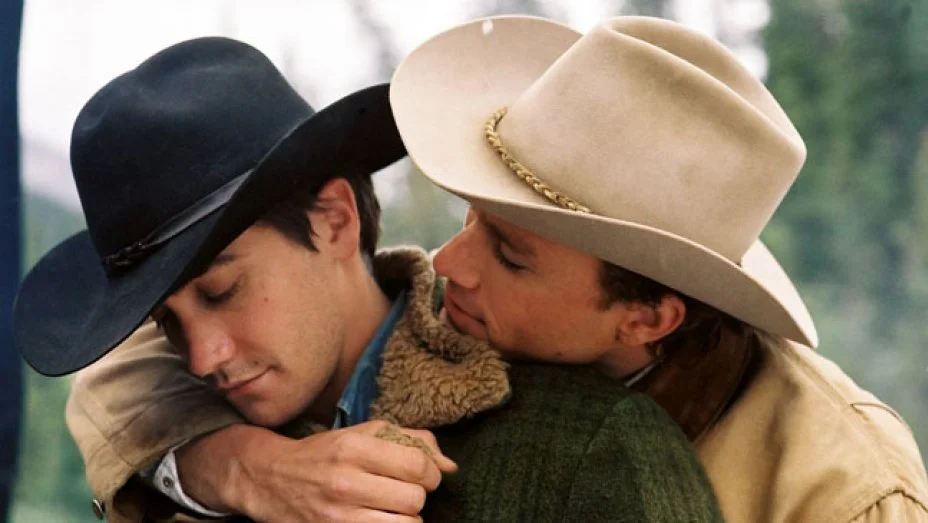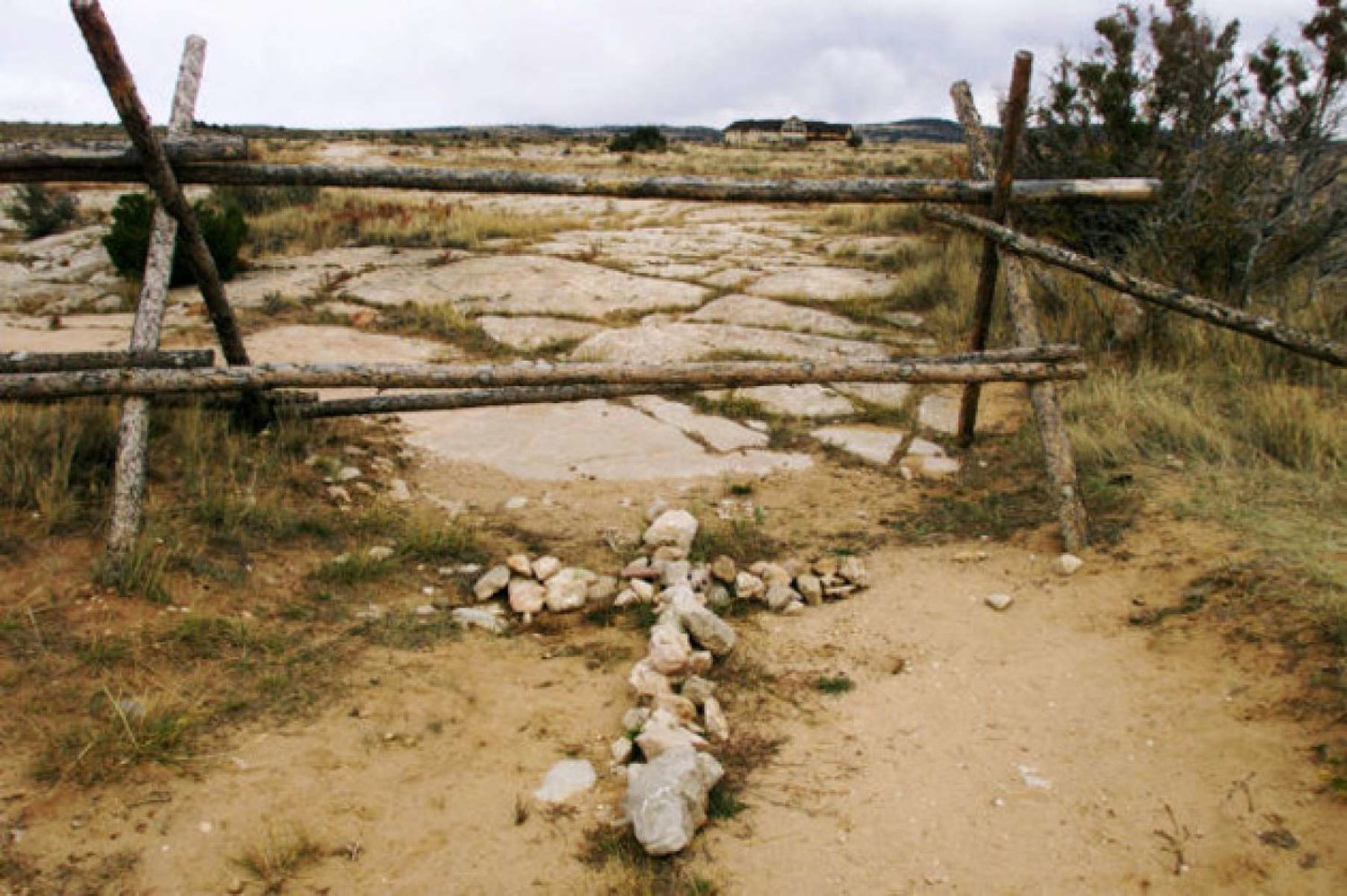A Goddamn Bitch of an Unsatisfactory Situation: Brokeback Mountain and the Rural Queer Crisis
After my computer died in the middle of parent-teacher conferences, I spent the time between conversations checking my phone. While scrolling through Facebook, I came across a post from The New Yorker, reminding their readers that before it was an Academy Award winning film, Brokeback Mountain appeared in their pages as a short story by Annie Proulx. In quick bursts, I devoured it, appreciating its heartache and yearning—seeing within it my own tears and tribulations—more as a twenty-seven year old than I ever did as a fresh-faced freshman. Then, too, I had read it surreptitiously, standing in the aisle of a Barnes & Nobles a week after I’d seen the film in theatres. I had the money to buy the book, but I could not fathom the courage to walk up to the counter to pay for it. Even if, somehow, I did, taking it home, displaying it proudly on my shelf, was out of the question.
Similarly, I saw the movie in secret, going with a queer friend on a Tuesday night, telling my parents we were going to the arcade. Her dad had bought us the tickets—we were too young for its R-rating—and sitting in the dark, a strange thrill passed through me, the rush of doing something clandestine and adult. Never before had I seen my loves and fears, doubts and anxieties, portrayed on the big screen. With the advent of the internet and the budding Gay-Straight Alliance at my school, I knew other queers existed, that I was not, in fact, alone, but it could not compare to the validation of seeing queer love not only gather an audience, but garner accolades. I left the theatre emboldened, eyes wet and heart racing.
The feeling lasted until third period the next day, when a fellow student in drama class approached me. “I saw you,” he said, tone casual, “at the theatre.” He paused, expectant, before asking me if I liked the movie. Up until this point, I’d affected what I called a “soft coming-out,” revealing the truth to close friends and the other members of the GSA, while concealing it from my family and the school population at large. The fact that I had been seen—caught, as if at the scene of a grisly murder, red-handed—filled me with dread. I made some excuse, saying my friend had wanted to see it and I didn’t even know what the movie was about, and quite literally ran away.
The memory of that day in drama class bubbled to the surface as I sat in my darkened apartment, re-watching Brokeback Mountain for the first time in years. Much of the film concerns itself with running away, not from a physical location, but from the truth. Other than a brief repudiation (“I’m not no queer”), Ennis’ and Jack’s sexuality is never given voice, only alluded to with diverting turns of phrase. The oppressive weight of what they cannot admit tinges their lingering, forlorn glances, as tangible as the alpine chill. Distant shots of the mountains instill a sense of grandeur, but also of insurmountable remoteness. The characters, and the viewer, are quite literally dwarfed by the sheer magnitude, not only of Wyoming’s peaks, but of the oppressive atmosphere that suffuses the very air.
Set in 1963 and spanning nearly twenty years, snapshots illustrate the hushed, isolated existence of rural queers, a feeling all too familiar when living in a town of 5,000, where the nearest big city is over an hour away. Looking back on my life, the distance between who I am now—an out, proud queer man—and who I once was seems unfathomable. How different would my life had been, I wondered, if instead of the liberal oasis of Atlanta, I grew up in Gray, Georgia? Or Clayton? Or Mitzpe Ramon?
It led me to question which of my students are queer. What did they think being queer meant, if it was even a word they’d heard before? Was it only something that existed in movies and Tel Aviv? Had they ever met a queer person? Even if they gathered the courage to come out, what resources were available to them? The only homeless center for queer youth in Israel (Beth Dor) is in Tel Aviv, nearly three hours away from Mitzpe, and there exists no anonymous testing center for HIV and STDs nearby. The same problems plaguing queers in America—the discrepancy of safety and resources available to queers in urban centers versus rural communities—is further exacerbated by the conservative, religiously-entrenched mindset of Israel’s periphery.
MEMORIAL FOR MATTHEW SHEPARD IN LARAMIE, WYOMING
One might be tempted to shake one’s head, cluck one’s tongue, and think well times have changed. But to allow ourselves to be lulled into this illusion of progress would be to dishonor the memory of our queer brothers and sisters whose blood has been shed by hate or complacency. One year after Brokeback Mountain first appeared in the pages of The New Yorker, Matthew Shepard was beaten and left for dead on a fence in Laramie, Wyoming. Last year, a gunman killed 49 queers (most of them Latinx) at Pulse nightclub in Orlando. This year alone, twenty-four trans individuals have been murdered.
Israel, too, has an unfortunate history of violence against queers. Two years ago, a woman was killed by an ultra-Orthodox Jew during the Jerusalem Pride parade. He’d been released from prison only three weeks earlier, where’d been serving a sentence for stabbing three marchers during the same parade in 2005. In 2009, a shooting at Tel Aviv’s branch of Israeli’s LGBTQ association resulted in the death of two individuals, while fifteen more were injured. The perpetrators were never caught.
And what of AIDS? As we mark the 29th World AIDS Day on December 1st, we remember the nearly 35 million people who have died of HIV or related illnesses (one million in 2016 alone). With an administration that refuses to even mention the queer community in its acknowledgement of the day, and the astronomical cost of treatment and medication, in no way aided by Trump’s abomination of a proposed healthcare bill, what are we to do? The problem is no solely an American one. In Israel, 43.8% of new, male carriers in 2014 were queer. 65% of Israelis have never had an STD test. Lack of education and resources only add fuel to the flames.
Have we progressed then, not just from 1963, but from 1997? Or 2005? Or 2016? I would like to think we have, though the evidence shows there is farther still to go. While the queer community has made leaps and bounds in terms of acceptance and visibility, our struggle—for access to healthcare, for equal protection under the law, even, yes, for our lives—continues. In one of Brokeback’s more emotionally charged scenes, Jack expresses his displeasure at their current situation—forced to hide and subsist on “a few high-altitude fucks a year”. Ennis tells him that, if you can’t fix it, you’ve got to stand it. The queer community has stood it for long enough—now it’s time to fight.
---
Alex Franco is the queer son of an immigrant and a southern belle. He hails from Atlanta, GA, and now teaches English in southern Israel.
Archive
- February 2025
- November 2024
- October 2024
- September 2024
- August 2024
- July 2024
- June 2024
- May 2024
- April 2024
- October 2023
- July 2023
- June 2023
- May 2023
- April 2023
- March 2023
- February 2023
- June 2022
- April 2022
- March 2022
- January 2022
- December 2021
- October 2021
- September 2021
- August 2021
- July 2021
- June 2021
- May 2021
- April 2021
- March 2021
- February 2021
- January 2021
- December 2020
- October 2020
- September 2020
- August 2020
- July 2020
- June 2020
- May 2020
- April 2020
- March 2020
- February 2020
- January 2020
- December 2019
- November 2019
- October 2019
- September 2019
- August 2019
- July 2019
- June 2019
- May 2019
- April 2019
- March 2019
- February 2019
- January 2019
- December 2018
- November 2018
- October 2018
- September 2018
- August 2018
- July 2018
- June 2018
- May 2018
- April 2018
- March 2018
- February 2018
- January 2018
- December 2017
- November 2017
- October 2017
- September 2017
- August 2017
- July 2017
- June 2017
- May 2017
- April 2017
- March 2017
- February 2017
- January 2017
- December 2015
- November 2015
- October 2015
- September 2015
- August 2015
- July 2015
- June 2015
- May 2015
- April 2015









